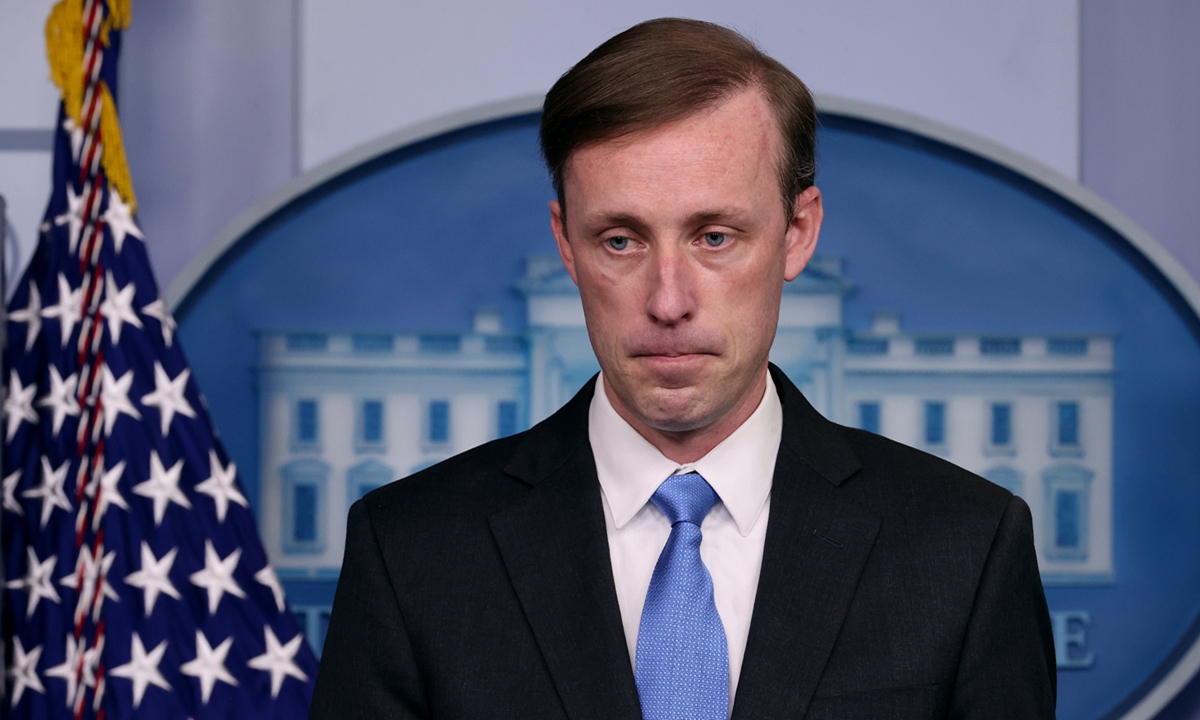The US must prove it no longer seeks to change China’s system: Global Times editorial

US National Security Advisor Jake Sullivan Photo: AFP
US National Security Advisor Jake Sullivan said in an interview with CNN broadcast on Sunday that one of the US' errors of previous approaches to policy toward China was a belief that through US policy, the Chinese system will fundamentally transform. Yet this is not the object of the Biden administration. Sullivan mentioned that "The goal of America's China policy is to create a circumstance in which two major powers are going to have to operate in an international system for the foreseeable future." He added that the environment should be "more favorable to the interests and values of the US and its allies and partners."As national security advisor, Sullivan said the US government is no longer trying to transform China's system. This can be regarded as a step in a positive direction for Washington. At the same time, we need to see the Democratic administration focuses on ideology a lot. Sullivan made such a statement not because the US has lost the will to "transform China," but because the US has reluctantly accepted a reality: To transform China is something that the US cannot achieve.
Transforming the world is the basic political thinking of the US, which corresponds to its deep-rooted security concept. In other words, the US is keen to change the systems and behaviors of other countries. In addition to its Christian missionary mentality, it is more important to eliminate external threats, and increase the US' security and interests by this means.
The Soviet Union collapsed this way during the Cold War with the US. As a result, the US has dominated the world as the sole superpower. This is a typical example of the US succeeding in reinventing an adversary. But more typically, instead of becoming a partner of the US and Europe by accepting the basic framework of Western institutions, Russia has been further attacked by the US because Russia is too powerful.
Politically, Japan has been completely Westernized and has maintained US military presence on its soil for a long time. Its rapid economic rise last century shocked Washington, and the "Japan threat" became another major concern of US elites. The US took action and cracked down on Japan's competitiveness. This period of history tells people how much the US refuses to accept strategic challenges from the outside world.
Behind the US' attempt to "transform China" is Washington's consistent prejudice against socialism. Apart from that, the US' fundamental goal is to dismantle the engine of China's emergence, and break up China's mobilization and unity. If the US could succeed, such an approach could best consolidate US hegemony at the lowest cost.
However, from the Trump administration, the US has become more and more frustrated with such propositions and tactics. It has especially lost confidence in achieving the goal through an engagement strategy. So the US started to shift its strategy toward containment against China, initiated by the Trump administration and continued and completed by Biden's team. Managing "intense competition" has become a new slogan of the Biden administration.
The political elite in the US will not accept the Chinese system. They actually just acknowledged the reality that China's system cannot be shaken externally, so instead, they tried to figure out what they can do to undermine the constant vitality that the Chinese system infuses into the country's development, to eventually crumble the system. This is what the Biden administration means by "intense competition."
While we are not hoping for Washington's strategic goodwill, we can still make use of Sullivan's statement in a positive way. After all, such a statement would help ease China-US relations, and we should ask the US to put that statement into action and reduce its political interference in China's internal affairs.
Not pursuing to transform China's system is a way for the US to shrink back from difficulties after acknowledging them. What has prompted the US to make such an adjustment is China's continued success and its increased political confidence that goes along with it. As China will continue to maintain its willpower and momentum of growth, the US' ambitions to encircle and suffocate China will be dismantled, and China's strong development will help continue the country's strategic initiative.
